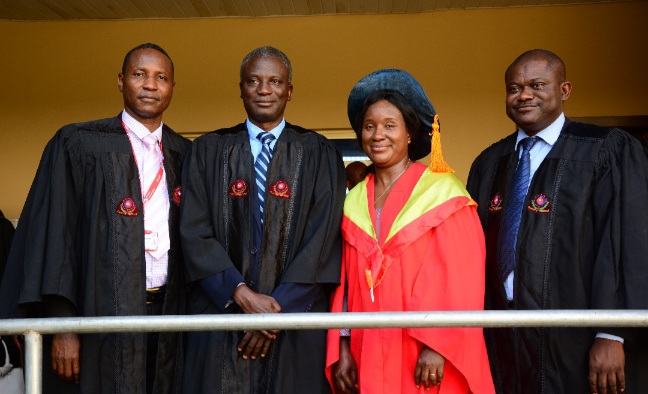A Professor of Economics and Fellow of the Institute of Chartered Accountants of Nigeria, Olayinka Adenikinju, has described looking inwards as the best and most effective way to revamp the Nigerian economy.
Adenikinju from the College of Management and Social Sciences, Bowen University, Iwo, Osun State, made the recommendation while delivering the 11th Inaugural lecture of the institution.
She noted that the need to enhance the corporate performance of firms operating in the country had become inevitable at this crucial time.
In her paper entitled ‘Act of God, or Looking Inwards: Unraveling the Drivers of Corporate Performance in Nigeria,’ Adenikinju observed that the drivers of corporate performance depend on internal and external factors. She listed revenue growth, profitability, and liquidity as internal factors, while the external factors included the macroeconomic environment, growth rate of GDP, interest rates, inflation, exchange rates, international trade, competitive forces, consumer preferences, sustainability issues, and reputable management.
She also noted that many issues in corporate governance in Nigeria had remained unresolved due to the poor quality of data.
The professor of economics also observed that corporate income tax levied on companies has a negative effect on the performance of business firms in Nigeria, adding that many firms had experienced financial problems leading to mergers, acquisitions, and liquidations.
According to her, Nigerian firms are suffering from hostile external factors originating from exchange rate volatility, high inflation, a difficult operating environment, inconsistency of government policy, and poor infrastructure.
These issues have led to many international firms exiting the country. Mrs. Adenikinju suggested that the Nigerian government must put in place policies to reverse the trend if the country wants to address issues of poverty, unemployment, high inflation, and low economic growth.
She argued that it is important to reverse the current corporate governance codes to ensure that companies adopt the best practices that will enable them to adjust, adapt, and mitigate the constraining external environment prevailing in Nigeria.
She further spoke of the need to deepen the stock market in Nigeria, especially in the areas of long-term instruments. According to her, the absence of variety in long-term debt instruments has reduced the proportion of long-term debt in the capital structure of companies in Nigeria. “The establishment of more platforms for trading other securities such as bonds, commodities, and derivatives combined with other initiatives; dematerialization of shares certificates, e-dividend, direct cash settlement, and multiple account regulation will contribute to the growth of the Nigerian capital market. “Moreover, the issues around data and cost of access to data should be addressed by the relevant regulatory agencies in the sector to ease the comprehensive study of corporate governance in Nigeria,” she added.
In his own remarks, the vice-chancellor of the university, Professor Jonathan Babalola, asserted that while Nigerians commit themselves to prayers, effort should also be made to look inwards to fix the economy. “The government must make efforts to develop a good structure and policies that will revamp the economy. Corruption must be dealt with in Nigeria,” he said.
. TheWitness







